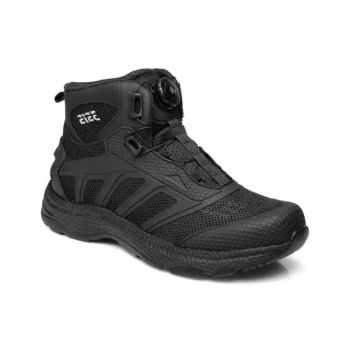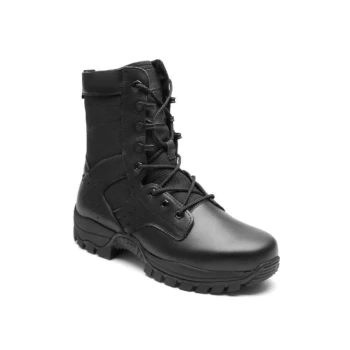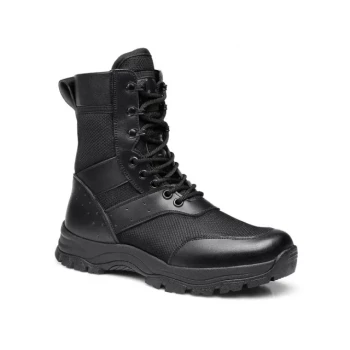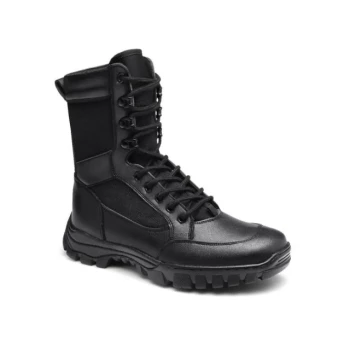The most recommended sustainable materials for Wellington boots are natural rubber, recycled rubber, and specially formulated biodegradable PVC. Natural rubber stands out as the premier choice because it is a renewable resource that is also durable, recyclable, and fully biodegradable. Recycled rubber offers a circular solution by reducing manufacturing impact, while biodegradable PVC provides an alternative to conventional plastics.
The best material for sustainable Wellington boots is natural rubber due to its renewable and biodegradable properties. However, true sustainability requires looking beyond the material itself to consider the brand's ethical sourcing and manufacturing practices.
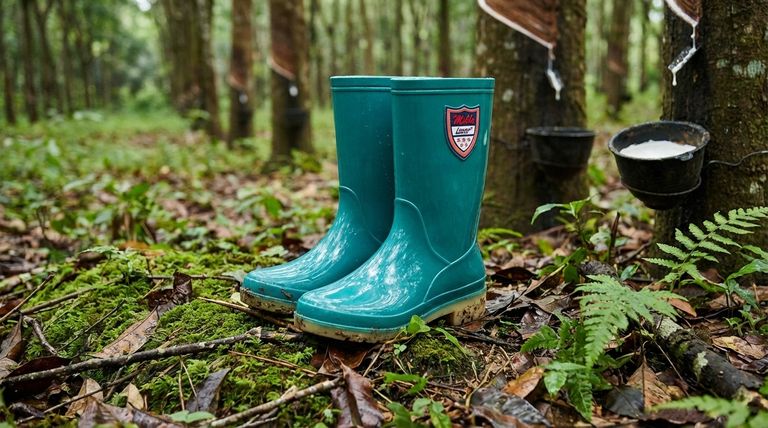
The Primary Sustainable Material Choices
When evaluating Wellington boots, the core material dictates the majority of its environmental footprint. Understanding the lifecycle of each option is key to making a responsible choice.
Natural Rubber: The Gold Standard
Natural rubber is harvested as latex from the Hevea brasiliensis tree. This process does not harm the tree, making it a renewable resource.
Its key advantages are its high durability and natural biodegradability. A well-made natural rubber boot can last for many years, and at the end of its life, it will break down without releasing harmful toxins.
Recycled Rubber: A Circular Approach
Recycled rubber utilizes post-consumer or post-industrial rubber waste, diverting it from landfills. This approach significantly reduces the environmental impact of manufacturing.
The primary benefit is its contribution to a circular economy, minimizing waste and the need for virgin resources. However, the specific performance and biodegradability can vary depending on the original source of the rubber.
Biodegradable PVC: A Cautious Alternative
Some manufacturers offer boots made from biodegradable PVC. This material is specifically engineered with additives that allow it to break down over time when exposed to environmental elements like sunlight and soil microorganisms.
While a clear improvement over its conventional counterpart, it's a less ideal choice than natural rubber. The conditions and timeframe required for it to biodegrade fully can be specific and may not always be met in a typical landfill.
Materials and Additives to Strictly Avoid
Equally important as knowing what to look for is knowing what to avoid. Certain materials commonly used in footwear production are highly detrimental to the environment and human health.
Standard PVC (Polyvinyl Chloride)
Conventional PVC is a synthetic plastic derived from petroleum. It is not biodegradable and can persist in the environment for hundreds of years.
Worse, its production and disposal can release toxic chemicals, including dioxins. When shopping, if a boot is simply listed as "PVC" without the "biodegradable" qualifier, it should be avoided.
Harmful Additives: Nitrosamines & Chlorinated Paraffins
The danger isn't always in the base material but in the chemicals used to process it. Nitrosamines, which can be found in some rubber products, are carcinogenic.
Chlorinated paraffins are pollutants that can accumulate in the food chain, posing a risk to wildlife and humans. Reputable, sustainable brands will explicitly state that their products are free from these harmful substances.
Understanding the Trade-offs
A truly sustainable choice involves more than just reading a label. It requires a deeper look into the entire lifecycle and the ethics behind the product.
The Nuance of "Biodegradable"
The term "biodegradable" can be misleading. While preferable to non-biodegradable materials, it's important to understand the context. Some materials only break down under specific industrial composting conditions, not in a backyard or standard landfill.
Durability as a Form of Sustainability
The most sustainable product is often the one you don't have to replace. Natural rubber's inherent durability means a longer lifespan, reducing overall consumption and waste.
The Importance of the Entire Supply Chain
A boot made from a "good" material can still be unsustainable if its production is unethical. True sustainability encompasses fair labor practices, safe working conditions, and energy-efficient production methods. Look for brands that are transparent about their entire supply chain, from sourcing raw materials to final assembly.
Making the Right Choice for Your Needs
Your final decision should align with your primary sustainability goal.
- If your primary focus is performance and natural lifecycle: Choose boots made from natural rubber sourced from a brand with transparent and ethical production standards.
- If your primary focus is reducing landfill waste: Seek out boots made with a high percentage of recycled rubber.
- If you must choose a synthetic option: Ensure it is explicitly labeled "biodegradable PVC" and research the brand's claims, while recognizing that natural materials remain the superior environmental choice.
Ultimately, an informed decision empowers you to invest in a product that is better for both you and the planet.
Summary Table:
| Sustainable Material | Key Advantage | Key Consideration |
|---|---|---|
| Natural Rubber | Renewable, highly durable, and fully biodegradable. | Ensure ethical sourcing from the brand. |
| Recycled Rubber | Reduces waste by using post-consumer materials. | Biodegradability and performance can vary. |
| Biodegradable PVC | Engineered to break down over time. | Requires specific conditions to biodegrade fully. |
| Materials to Avoid | Reason to Avoid | Commonly Found In |
| Standard PVC | Not biodegradable; can release toxic chemicals. | Low-cost, non-sustainable boots. |
| Harmful Additives (e.g., Nitrosamines) | Can be carcinogenic and pollute the environment. | Poorly regulated manufacturing processes. |
Ready to Source Sustainable Wellington Boots?
As a large-scale manufacturer, 3515 produces a comprehensive range of footwear for distributors, brand owners, and bulk clients. Our production capabilities encompass all types of shoes and boots, including high-performance Wellington boots made with sustainable materials like natural and recycled rubber.
Partner with us to benefit from:
- Expert Material Sourcing: We prioritize ethical and sustainable material suppliers.
- Large-Scale Production: Meet your bulk order requirements efficiently.
- Customization Options: Develop boots tailored to your brand and market needs.
Let's create durable, eco-friendly footwear together. Contact our team today to discuss your project.
Visual Guide
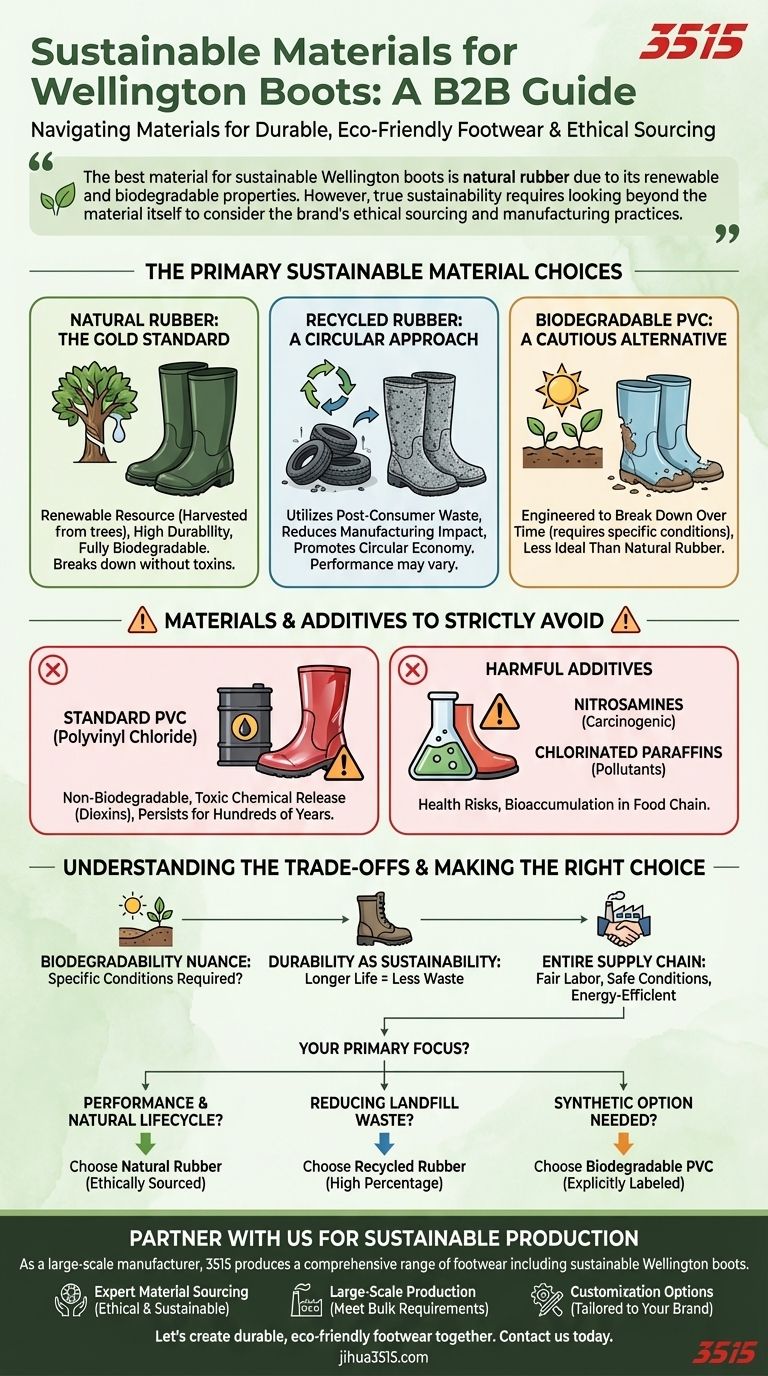
Related Products
- Factory Direct Wholesale Rain Boots Durable Waterproof & Fully Customizable
- Factory-Direct Wholesale Canvas Boots with High-Traction Rubber Soles
- Premium Grain Leather Safety Boots for Bulk Supply
- Premium High-Cut Waterproof Safety Boots Manufacturing & Wholesale Solutions
- Premium Wholesale Waterproof Safety Boots High Performance Protection for Industrial Markets
People Also Ask
- Are there exceptions to the general sizing guideline for wellington boots? Find Your Perfect Fit
- How are PVC rain boots packaged for shipment? Bulk vs. Custom Branding
- What are the advantages of Polyurethane (PU) rain boots? Superior Durability, Insulation & Comfort
- Why is PVC resin important in making rain boots? The Key to Durability & Performance
- What role does the sole play in Wellington boots? It's the Engineered Foundation for Safety & Comfort
- What are the benefits of wearing Wellington boots in winter? Stay Dry and Warm in Wet Conditions
- How do different materials affect the comfort of Wellington boots? Find Your Perfect Fit for All-Day Wear
- What are the risks of wearing long boots in jungles? Avoid Drowning and Foot Rot












